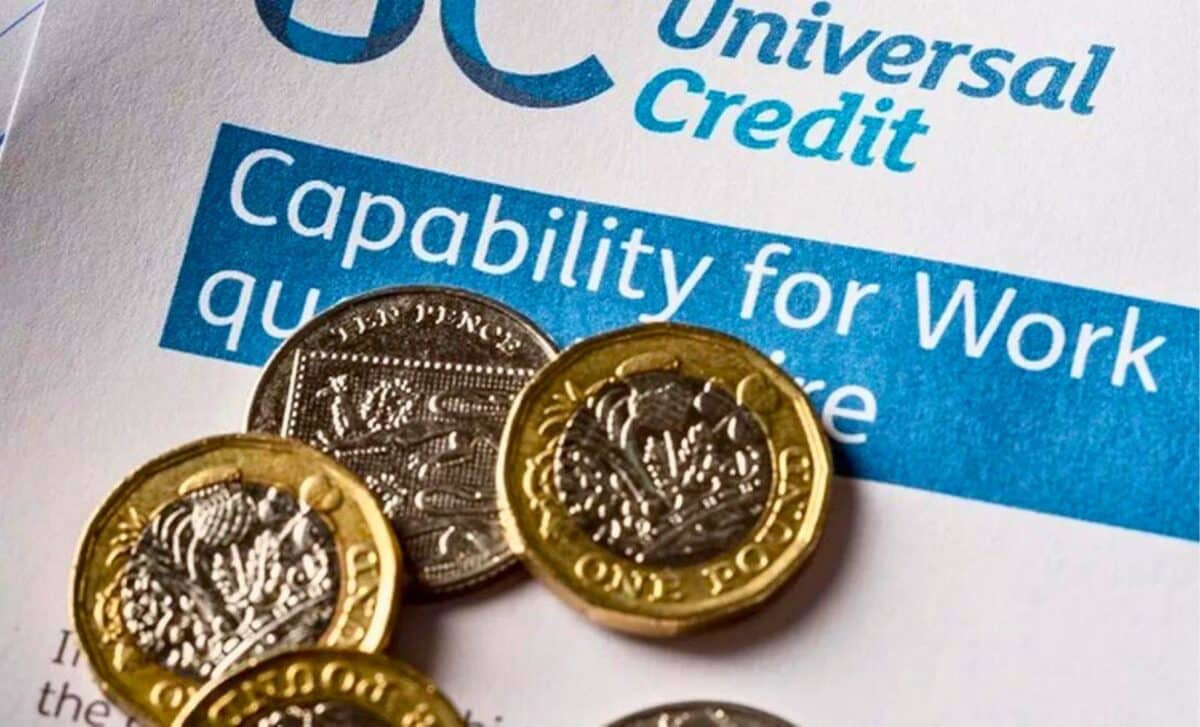Millions of Universal Credit claimants are set to benefit from a major change to their payments this week. Eligible claimants can now access extra financial help through the Household Support Fund (HSF), designed to help vulnerable people or those struggling to afford necessities.
Support for Vulnerable Groups
The Department for Work and Pensions (DWP) has stressed that this support is not restricted to vulnerable households already in receipt of benefits, with local councils ‘strongly encouraged’ to ensure that local residents receive adequate support.
The extension is particularly aimed at helping vulnerable groups, such as people at the end of their benefits, who often lack family and financial support networks.
A DWP spokesperson highlighted the particular challenges faced by care leavers: “Care leavers can face particular barriers when they leave care and start living independently.”
“For example, they may not have access to the same family networks as others and may not have the same financial, emotional or social support systems that enable them to live independently, respond to crises or avoid social isolation.”
Another spokesperson added: ‘The authorities should also consider helping people with family responsibilities in their area, as they may have additional heating, water or transport costs.”
“The government expects the fund to be used primarily to support the neediest households, particularly those with children and pensioners who would otherwise struggle to pay energy, food and water bills.”
Applicants are encouraged to contact their local council for more information on the support available through the Household Support Fund.
In addition, millions of recipients have already seen an increase in their Universal Credit payments following a 6.7% rise on 8 April. However, some are still waiting for this increase, which should be paid into bank accounts from this week.
The delay is due to the monthly ‘assessment period’ used to determine Universal Credit payments, which starts on the day a claim is made.
Changes to the rates apply after the first full assessment period after April 8, meaning that people whose assessment period began before April saw their payments increase from May 14.
On the other hand, people whose assessment period starts later can expect their payments to increase from Thursday 13 June.
This change should benefit many families and individuals who have had to make do with unchanged payments since the rate rise was announced.
The news follows the DWP’s announcement in May that Universal Credit recipients working less than 18 hours a week will have to look for additional work.
As part of the government’s wider welfare reforms, ministers have raised the threshold for administrative pay from the equivalent of 15 hours to 18 hours at the National Living Wage for an individual claimant.
This means that people working less than half a full-time week will have to meet their professional coach more frequently in order to increase their income, or risk losing their benefits.
Universal Credit New Benefit Payment Rates for 2024-25
Standard allowance (per month)
- For those single and aged under 25, the standard allowance will rise from £292.11 to £311.68
- For those single and aged 25 or over, the standard allowance will rise from £368.74 to £393.45
- For joint claimants both under 25, the standard allowance will rise from £458.51 to £489.23
- For joint claimants where one or both are 25 or over, the standard allowance will rise from £578.82 to £617.6
Extra amounts for children
- For those with a first child born before April 6, 2017, the extra amount will go up from £315 to £333.33
- For those with a child born on or after April 6, 2017 or second child and subsequent child, the extra amount will go up from £269.58 to £287.92
- For those with a disabled child, the lower rate addition payment will rise from £146.31 to £156.11 and the higher rate from £456.89 to £487.58
Extra amounts for limited capability for work
- For those deemed to have limited capability for work, the extra amount will go up from £146.31 to £156.11
- For those deemed to have limited capability for work or work-related activity, the extra amount will go up from £390.06 to £416.19
Extra amounts for being a carer
- Universal Credit claimants can get an additional amount if caring for a severely disabled person for at least 35 hours a week
- The amount you get a month will rise from £185.86 to £198.31
- The work allowance rates will also rise in April next year
Increased work allowance
- The higher work allowance (no housing amount) for someone claiming Universal Credit with one or more dependent children or limited capability for work will rise from £631 to £673
- The lower work allowance for someone claiming Universal Credit with one or more dependent children or limited capability for work will rise from £379 to £404









